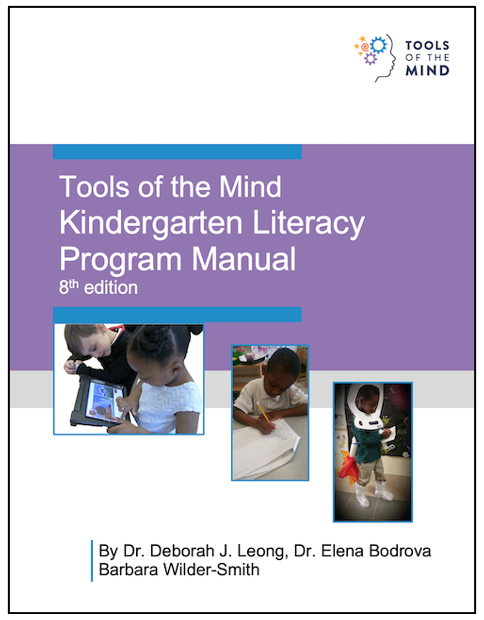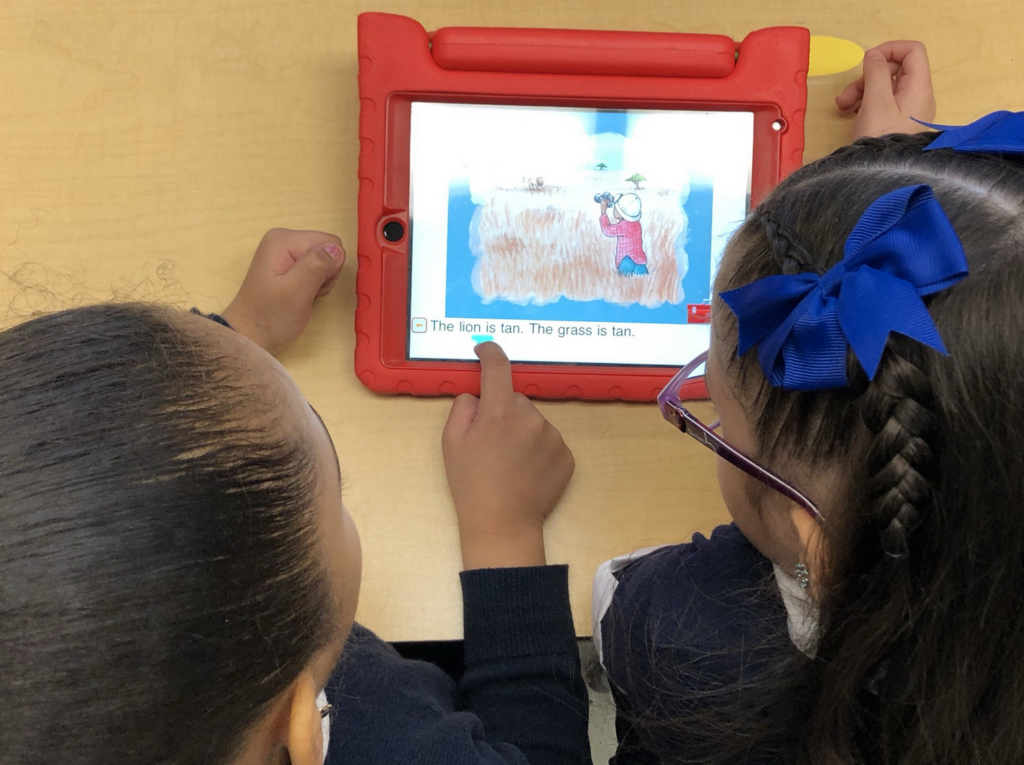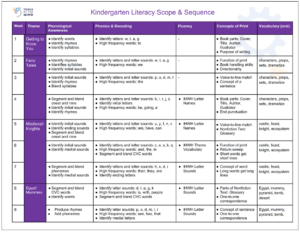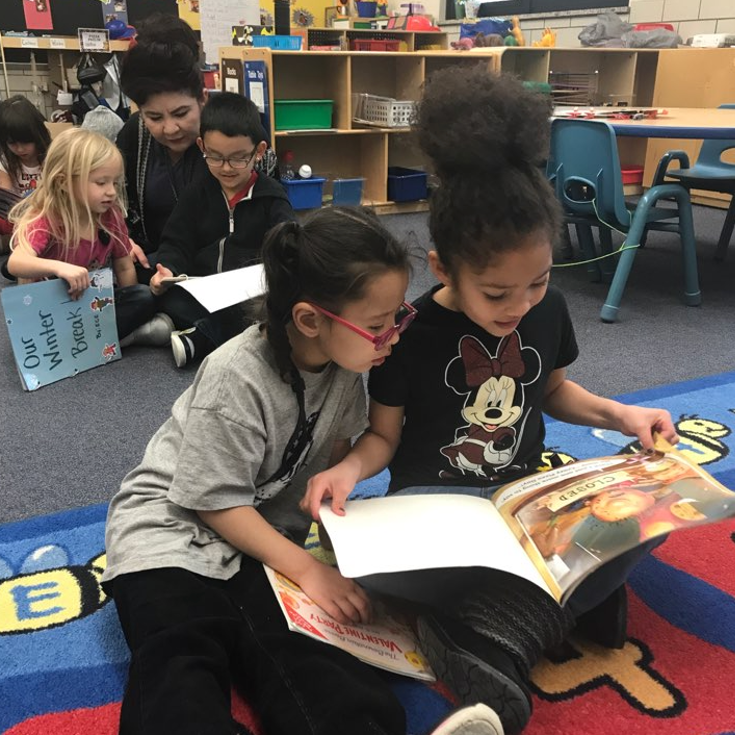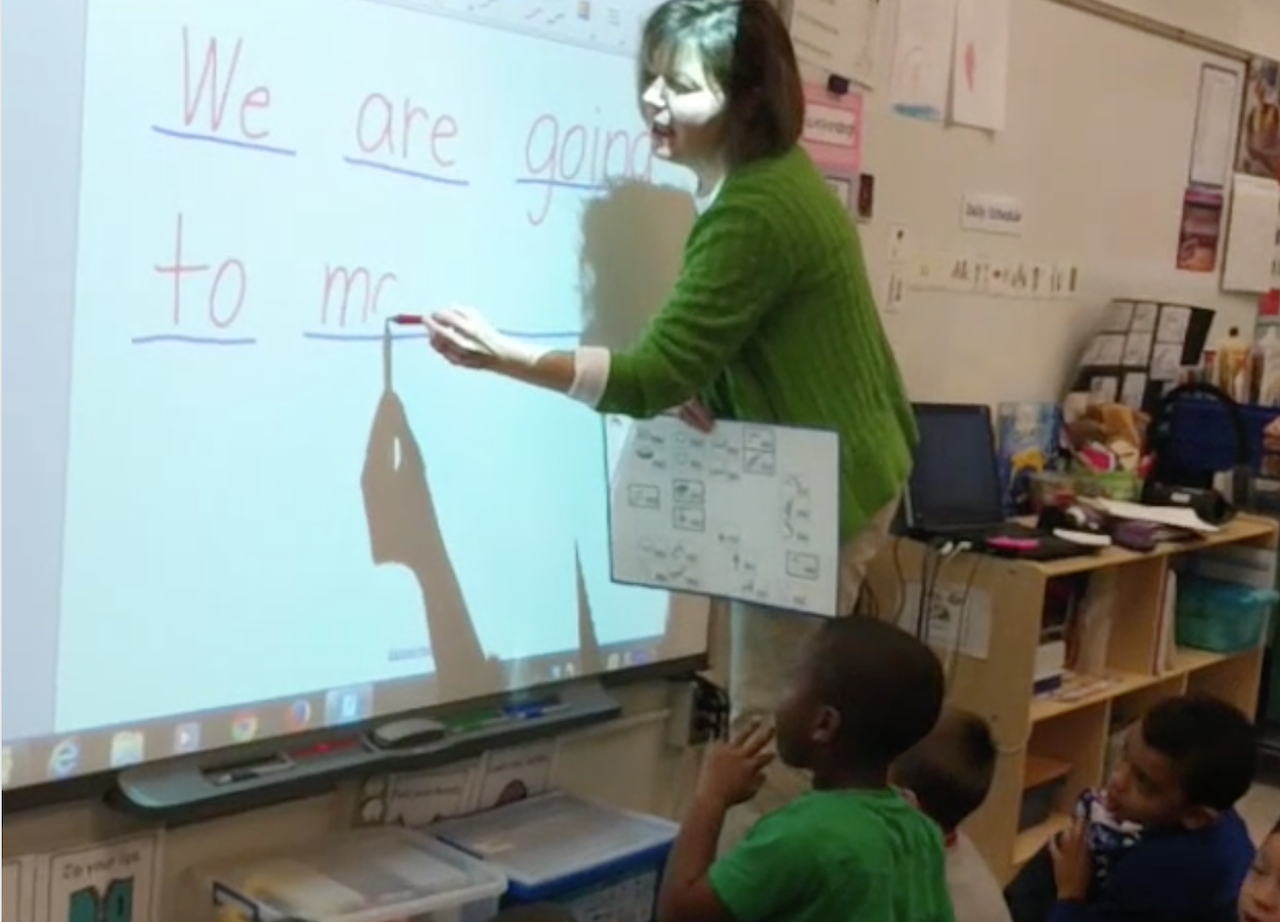Who Are You?
A Teacher
A Program Director or School Administrator
A Parent
Someone Else
Thank you for your interest! We have some resources that we think might be right for you, or you can get in touch with us if you’re a researcher who wants to discuss prospective studies:
Case Studies
Resources
Get in Touch With Us
Are you interested in learning more about Tools of the Mind’s approach for your professional knowledge, in research partnership opportunities with Tools of the Mind or as part of your academic learning and development?
I’m interested in Tools approach for my professional knowledge.
I’m interested in researching more about or with Tools of the Mind.
I’m interested in Tools as part of my academic learning and development.
I’m interested in learning more about Tools and sponsoring or funding Tools development projects or partnering with Tools in some way.
Do you have funding available to for teacher training and classroom materials kits?
Yes — I have funding or strong prospects for funding.
No — I’m worried about making funding available.
Thank you for your interest! Our partnerships with sponsors, funders and friends have been instrumental in getting us to where we are today. Click below to be in touch with us. we look forward to exploring possible partnerships with you!
Get in Touch
That’s great! We have links to journal articles and academic research that may interest you. Which of these resources would you like to explore?
Case Studies
Resources
Thank you for your interest! Many professionals outside the field of early childhood education express interest in our approach. We have some resources that we think might be right for you:
Case Studies
Resources
We’ll try to give you the information you need. Our training model is designed to provide teachers with a Vygotskian theoretical foundation for a unified approach to teaching and learning across classroom practices and all activities.
Our PD includes in-person training workshops spread across the year, live webinars, eLearning modules, and our innovative ‘coach in your pocket’ iPad app iScaffold––so that teachers can learn in the way they learn best, and have all the support they need. Our curriculum is designed to support children’s development of executive function skills at the same time as core academic skills. Teacher understanding of theory grows through implementation of these activities, and use of daily dynamic assessment to individualize instruction.
Good partners for working with Tools are programs that are ready for a comprehensive curriculum in PreK or K, with the option in K to integrate district math curriculum. Does this model seem like a good fit for your needs?
I want to continue the conversation and see if Tools is right for my program!
I’m not sure––can you direct me to more information I can read about your program, or a way to talk directly with someone to get answers to my questions?
Are you looking for a model that combines intensive professional development for your teachers with a comprehensive curriculum?
Yes
No
I’m not sure yet — I need to learn more.
That’s great! Tools of the Mind combines intensive professional development and a comprehensive curriculum with a unifying pedagogy woven across all classroom practices, schedule, environment and activities.
Do you have funding available for professional development and classroom materials?
Yes — I have funding or strong prospects for funding.
No — I’m worried about making funding available.
Are you a PreK or Kindergarten teacher?
That’s great! The Tools’ model requires assistant teachers in each classroom. Do your classrooms have assistant teachers?
Are you interested in finding a Tools of the Mind program for your child, learning how to support self-regulation and executive functions development at home, or finding out how your child’s Tools of the Mind’s program supports your child’s learning and development?
I’m interesting in finding a Tools program for my child.
I’m interested in learning more about how to support executive functions at home.
I’m interested in learning more about how the Tools program my child is in supports my child’s development.
Are you teaching in a program that wants to adopt a new curriculum?
Yes — we’re looking for a new program.
We’re beginning to think about it.
I’m personally interested, but the discussion hasn’t been initiated at the program level.
Our approach has many small group activities, each led by a teacher, as well as activities in which teachers circulate to provide 1:1 scaffolding to each child, individualizing instruction.
We’ve had success in some classrooms with very small class sizes, but our model is designed to work with a full-time assistant in PreK and at least a .5 assistant in K.
Some programs that really wanted to implement Tools added staffing to make it possible. Do you think this could happen in your program?
We’re so glad you’re interested! We have many great Tools PreK and K classrooms across the country. Click the link below to find a program near you, and if there’s not a program near you, we encourage you to print and share some of the articles about Tools on our Resources page or send the link to our website to your local school administrator. Parents have led the initiative to bring Tools to several of our great programs!
Tools Locations
That’s great! In Tools, classroom management, environment, schedule as well as literacy, math and science activities all work together to build children’s executive functions and self-regulation skills. Does your program have access to funding to support training and purchase of Tools classroom materials?
No, not yet.
Yes, we have funding available.
With the staffing you need, it sounds like you’ll have all the things you need in place. If you know from what you’ve learned, that Tools philosophy and approach is a good match for your program and community, there’s just one more thing to think about: Does your staff know much about Tools of the Mind yet — are your teachers ready to take this change on with you?
Yes
Some may be, some may not be — or I haven’t yet discussed this with them.
That’s great! Our approach has many small group activities, each led by a teacher, as well as activities in which teachers circulate to provide 1:1 scaffolding to each child, individualizing instruction.
Classroom practices, management, and individualized instruction are all informed by the same theoretical underpinnings and knowledge of child development. For this reason, we train both lead and assistant teachers together and consider both instructional leaders in the classroom.
It sounds like your program is ready for Tools––would you like to learn more about Tools approach, programs that have successfully implemented Tools, or are you ready to register your program for Tools training?
Resources
Tools Training Workshops
That’s great! We’ll help you think through whether Tools is right for you. Do you have assistant teachers in your classrooms (or very small class size)?
That’s great! It sounds like Tools of the Mind is right for you and you’ve got everything you need in place for a strong start. You can continue to build teacher’s background knowledge about Tools and enthusiasm before beginning training by starting a Tools study group, having a Tools staff member present to your staff on the Tools PreK, and/or K curriculum and approach, by sending teachers to one of our presentations at a state or national conference, or starting a study group reading our book, Tools of the Mind: The Vygotskian Approach to Early Childhood Education. Once registered, we’ll provide you and your teaching teams with more information and they’ll be able to begin learning with one of our eLearning modules before their first in person workshop. Are you ready to register or do you want to learn more?
Register for Tools Training Workshops
Learn About the Tools Approach
Resources
Get in Touch
We love PreK; make-believe play is the heart of our PreK program. Is your program looking for a comprehensive curriculum––one that includes literacy, math and science?
We have lots of experience helping administrators with the transition to a new approach and curriculum. We suggest downloading some of the research articles on our website to share with teachers, sending them to a regional state or national conference where we are presenting or starting a study group reading our book,Tools of the Mind: The Vygotskian Approach to Early Childhood Education. We can do an overview presentation for your teachers, and you can contact us with teacher questions and concerns so we can address them before teachers get started. As soon as your teachers are registered for training, they’ll have access to eLearning modules and we’ll provide more information to help teachers learn more about our approach and curriculum before their first in-person workshop. Are you ready to register, or would you like to access more information to learn more?
Register for Tools Training Workshops
Learn About the Tools Approach
Resources
Get in Touch
We’re so glad you’re interested! Many of our Tools programs began with the interest of a single teacher! You’ll want to share information about Tools with your colleagues and program administrator - we’ll help you connect with more information to share but first we’ll help you think through whether our program is a good fit. Are you a PreK or K teacher?
Don’t give up! We’ve had program administrators and teachers who applied for and secured grants to fund additional staffing and Tools training! We encourage you to explore grant and other funding opportunities.
We also have an annual Carolyn Boyles Scholarship you can apply for, which covers the cost of training for one classroom team.
Many of the programs working with us began with a study group reading our book, Tools of the Mind: The Vygostskian Approach to Early Childhood Education. You can also get together and read research articles on the development of self-regulation and executive functions skills.
Choose from one of the these resources to learn more, or get in touch with us.
Learn About the Tools Approach
Resources
Get in Touch
Our approach has many small group activities, each led by a teacher, as well as activities in which teachers circulate to provide 1:1 scaffolding to each child, individualizing instruction.
We’ve had success in some classrooms with very small class sizes, but our model is designed to work with a full-time assistant in PreK and at least a .5 assistant in K.
Some programs that really wanted to implement Tools added staffing to make it possible. Do you think this could happen in your program?
Many of the programs we’re working with now were interested before they had access to funding–so don’t give up!
Some programs write grants to cover the training and materials costs, so this is an option. Other programs do a tiered rollout of Tools, beginning with Tools in a few classrooms with teachers who are invested and interested, building in more classrooms over the course of several years. This can be a good way to launch Tools in a program.
We also have an annual scholarship, the Carolyn Boyles Scholarship, awarded to one classroom each year, covering the cost of training, and encourage you to apply! We’re working on other options too––virtual training models, to reduce the cost of training and make it accessible to remote sites unable to access our Regional Training Workshops.
In the meantime, you can still get started! We encourage you to start a Tools of the Mind Study group with your teachers, and read our book, Tools of the Mind: The Vygotskian Approach to Early Childhood Education. Come see us and introduce yourself at one of our presentations at state and national conferences and reach out and contact us if you want to hear more about how other administrators put together funding to launch Tools in their program.
Which of these resources would be most helpful to you at this time?
Learn About the Tools Approach
Resources
Get in Touch
You’ll love our kindergarten program! Our K program is a comprehensive curriculum including all content areas including literacy, math, science and social studies, with the option to integrate a program's math curriculum.
Is your program looking for a comprehensive curriculum (with the option to use Tools math or integrate another math program)?
Tools of the Mind is a model that combines intensive professional development with a comprehensive curriculum in PreK and K.
Of course we’d like to encourage you to consider what we have to offer–-we’ve been refining our model for over 20 years, and have the ‘right’ recipe for sustainable capacity building in programs, with strong impact on teachers and children. We encourage you to learn more about our model, and see if it might be something you’d consider in the future.
Sometimes people come to us looking for an ‘add on’ self-regulation focused curriculum or a single-day professional development opportunity. While we don’t have a separate curriculum, because we’ve learned that integrating pedagogy across all areas of the curriculum and classroom practices is the most powerful way to influence the development of self-regulation and executive functions, we may expand our professional development opportunities for programs that want to learn more in the future.If this is what interests you, please let us know.
Which of these resources would be helpful?
Learn About the Tools Approach
Resources
Get in Touch
Sounds like you have all the things you need in place. Are you ready to register for our training or would you like more information to share with your team and program leadership?
I’m ready to sign up!
I’d like more information to share with my team and program leadership.
That’s great – we look forward to partnering with you! Click below for registration. If we don’t have a Regional Training Workshop in your area, contact us with the link below, and we can explore options together!
Register for Tools Training Workshops
Contact Us
Great! The resources below may be helpful. lick to get to the resource you think would be most helpful to you. If you’d like to talk with someone at Tools to learn more, or arrange for a Tools staff member to meet with your team to provide a curriculum overview, click contact link below.
Research Articles
Case Studies
Overview of Tools Program
Contact Us
Many of the programs we work with were interested before they had funding, so don’t give up! Some programs wrote grants to cover training and materials costs. We also have an annual Carolyn Boyles scholarship covering the cost of training and encourage you to apply. We’re working on other options, too, virtual training models, to make our training more accessible.
In the meantime, you can still get started. We encourage you to start a Tools of the Mind study group with interested colleagues and read our book, Tools of the Mind: The Vygotskian Approach to Early Childhood Education. And please, come see us and introduce yourself at one our presentations at state and national conferences, or reach out if you want to hear more about how other teachers and administrators put together funding to launch Tools in their program. Which of these resources wold be most helpful to you at this time?
Learn About the Tools Approach
Resources
Get in Touch
Some programs that really wanted to implement Tools added staffing to make it possible. Do you think this could happen in your program?
Don’t give up! We’ve had teachers who worked with their program administrators to apply for grants to fund more staffing and Tools training!
We encourage you to being a conversation with your colleagues and administrator, start a Tools of the Mind study group and explore funding and grant options.
We also have an annual Carolyn Boyles Scholarship which you can apply for, covering the cost of training for one classroom.
Choose from one of these resources to learn more or get in touch with us.
Research Articles
Case Studies
Overview of Tools Program
Contact Page
Our curriculum is comprehensive, with a unifying approach to teaching and learning woven across all activities. It includes literacy, math and science — but with a Tools twist; we embed self-regulation and executive functions practice in the design of our activities. In Tools Kindergarten program, we do have an option to integrate district math curricula into our approach, but our research to date has been on the complete Tools program implemented across all activities and teaching practices. If you’re committed to a core literacy program, we recommend waiting until the timing is right in your program to integrate the Tools approach to teaching and learning across more of the day to get the strong impact on both executive functions and academic skills (read results of our K study in PLOS ONE). This doesn’t mean you can’t get started, though, if you’re interested! You can read our book, Tools of the mind: the Vygotskian approach to early childhood education, or get to know us by coming to one of our state or national conference presentations. Many schools we work with, began with teacher initiated study groups, reading our book and integrating their learning into classroom practices. We’d also love to learn more about your program and interest in Tools, too–-contact us if you want to be in touch!
Contact Us
Buy Our Book
Regional & National Conferences
